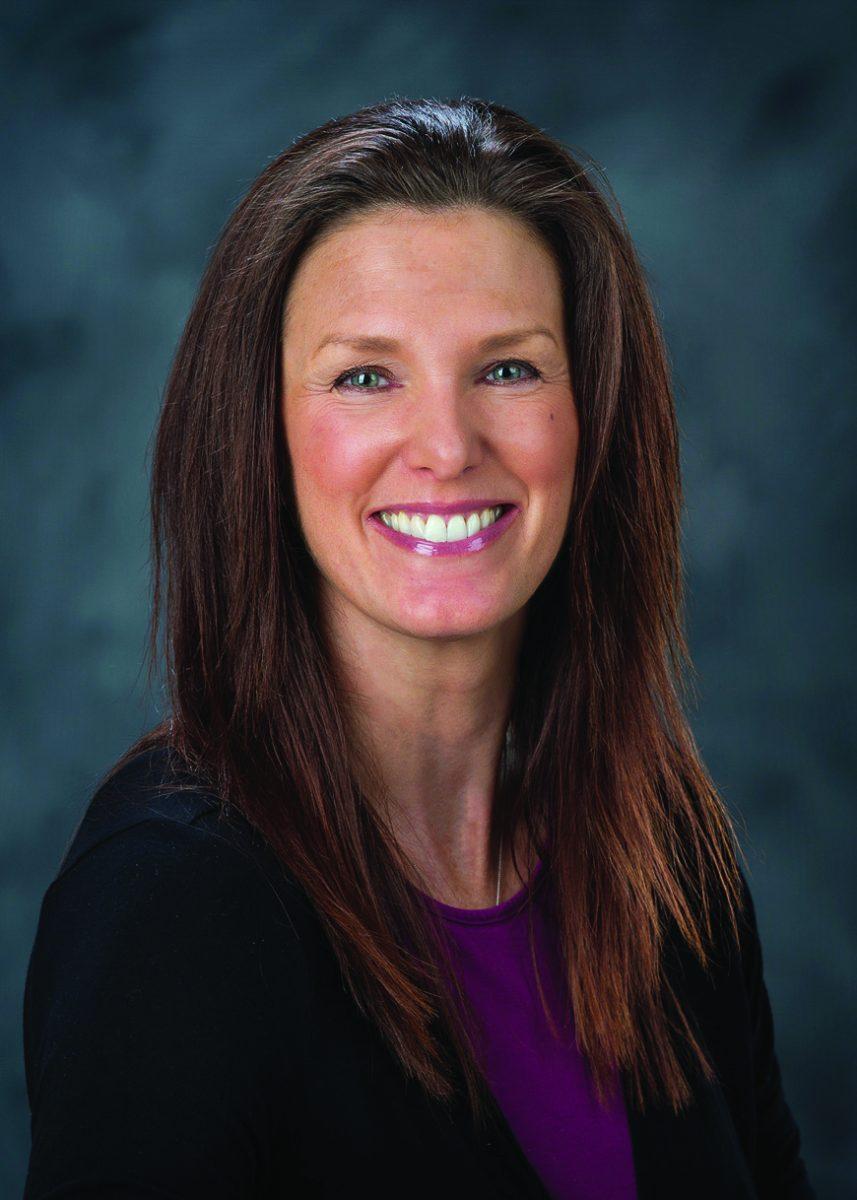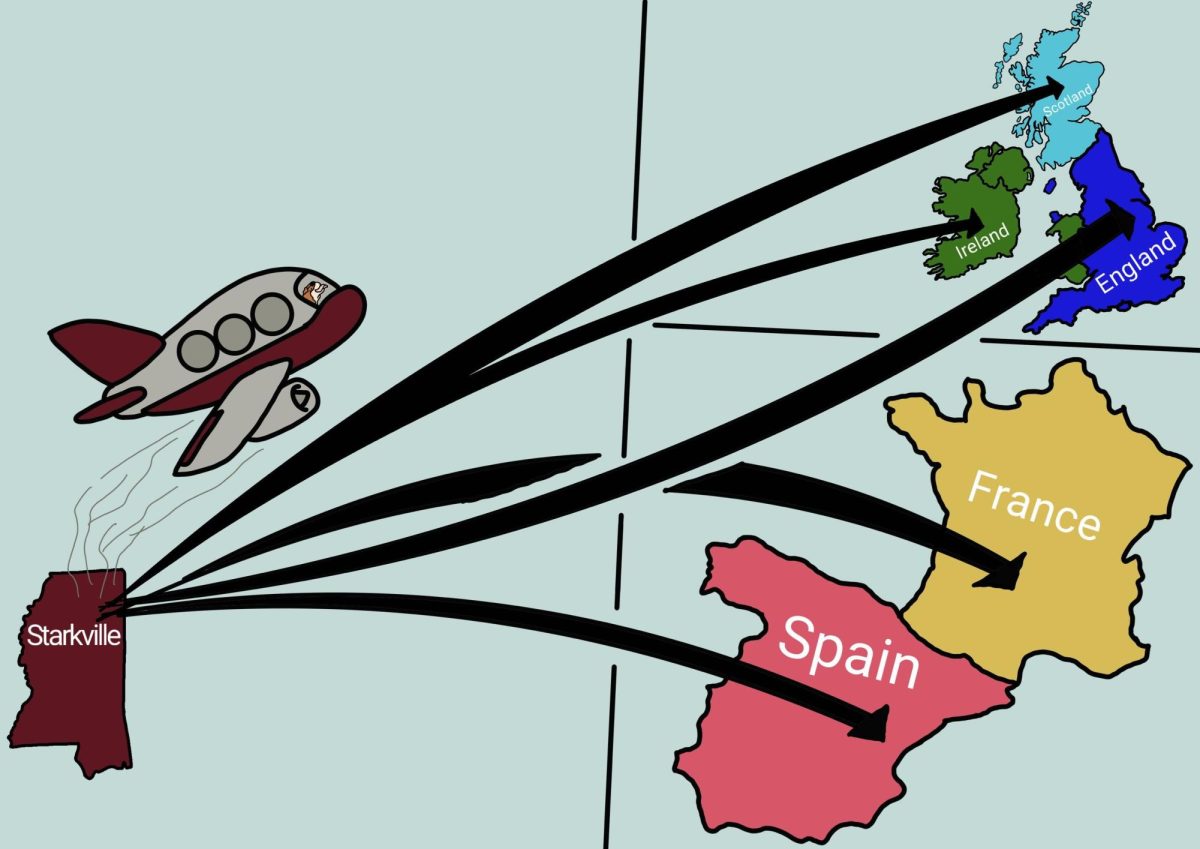Diana Outlaw wears many hats in her life: associate professor of biology at Mississippi State University, evolutionary bird expert and the status as “bird lady” on MSU’s campus. However, the one thing that most remember about Outlaw has nothing to do with her resume. It is about her daughter.
The biology professor is mother to 9-year-old Arya Outlaw. Outlaw smiled as she spoke of Arya, who she beamingly described as “full of joy and enthusiasm.”
Outlaw and her husband Rob began to notice the issues with Arya’s health when she was two.
“It began with some developmental delays. They knew there was something wrong with her eyes,” Diana said. “Between 3 and 4, we found out about the growth hormone deficiency, and we started studying the endocrinology and genetics.”
Since then, it has been determined that Arya suffers from pituitary dwarfism, echolalia and some genetic mutations. This affects basically all aspects of her daily life, from eating and talking to learning and expressing emotion.
Though her medical team is almost certain her condition includes autism, the journey of Arya’s diagnosis has been a continual progress over the course of the past seven years. As with many chronic medical conditions, diagnoses are not simple, so the 9-year-old has never known life without constant medical testing.
“My daughter has given up so much blood and so many MRIs. She is one tough kid for sure, but she still hates the blood pressure machine,” Diana said laughing.
Diana said she has given Arya shots of synthetic growth hormones every day since she was 3, and according to Outlaw, the young girl has wonderful attitude.
“She is always up for shots if she has to be, but she does love when she gets a day off,” Diana said.
Diana described the beginning of this journey as confusing. The professionals continued to tell her Arya would obtain normal health in time, but normality never arrived for Arya.
“I remember the day that I realized she was not going to live a normal life, and it was soul crushing,” Diana said. “It was at that point that I realized that everything was different now.”
As the biology professor began a plan of action to be an even better mother to her unique daughter, she realized she knew much about the genetics and physiology of her daughter’s condition, but did not find the biological information practically helpful.
“I wanted to learn more about what is going on in her mind, not just her brain,” Diana said. ”I want to understand the interaction between the two, and how it manifests in terms of her behavior.”
In a pursuit to better understand her daughter, the doctoral professor decided to enroll in psychology undergraduate classes beginning in the fall semester of 2018. Her first courses were developmental psychology and psychology of learning. She found the information valuable enough to continue into spring classes, and is currently enrolled in abnormal psychology along with language and thought.
“I really am figuring out how to understand my child better, how to be a better mother to her, and learning to change my priorities,” Diana said.
Arya is third grade at a local school. She has a full-time aide, and she is in an inclusion classroom, which includes a regular teacher, a special education teacher and a few other kids with disabilities.
According to her mother, Arya’s disability affects her ability to speak, to walk and to visually comprehend. However, Diana cannot deny this one beautiful fact of Arya’s condition—it has changed Diana’s perspective on life for the better.
“She has caused my husband and I to reevaluate what is important and what matters in life,” Diana said. “I do not know if I would have liked the person that I would have been had she been quote-on-quote, ‘normal.'”
After being immersed in the often pretentious and competitive environment of academia for so long, Diana has found Arya’s perspective to be a breath of fresh air.
“She helped me break out of the, for lack of a better word, academic bullshit,” Outlaw said.
Though Diana can now see the positive results of her daughter’s condition, she attests there are still days when accepting Arya’s differences are difficult.
“I grew up in an environment where if anyone had an intellectual disability, mental retardation or whatever, it was literally looked down on,” Diana said. “Even trying to get my own parents to reconcile the fact that their granddaughter is not neurotypical has been a battle. I know that I have their full support, but it’s still hard.”
Acceptance has proved a journey rather than a destination for this mother.
“Over months of reconciliation with my own feelings, I realized I had to stop thinking things were going to be different, accept what is now, and figure out what I can do in the present for her to make the best of this,” Diana said.
Diana said Arya has the gift of positivity, telling about her routine end-of-the-day reunions with her daughter.
Diana said Arya runs to her mother, jumps up and down and wraps her in a giant hug, all the while screaming, “Mommy! Mommy! Mommy!”
“People watch her do it, and you can see their grins,” Diana said. ”I bet other parents want that. It’s genuine, too. There’s no pretense with her.”
Diana attests Arya’s joy and empathy are unmatched, and she knows there is so much more to Arya’s differences than the difficulties.
“A lot of people do not understand what she might have to offer the world, and I want to tell them,” Diana said smiling. “She is amazing … the empathy that she feels, the depth of feeling and her innocence. It’s endearing.”






















































































